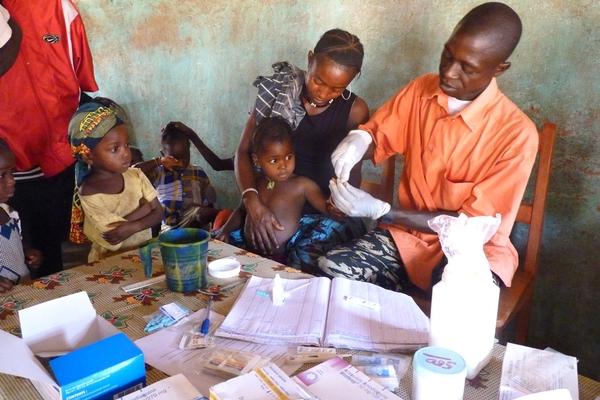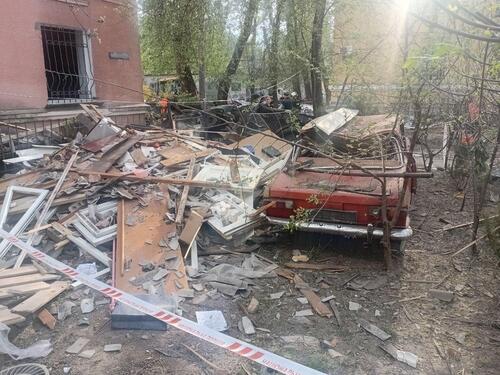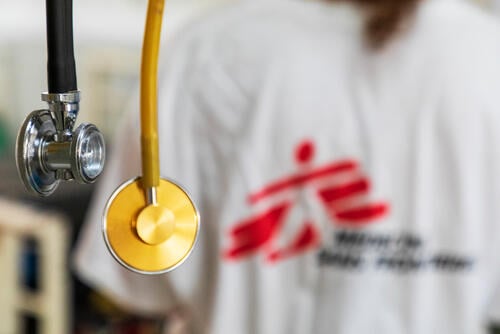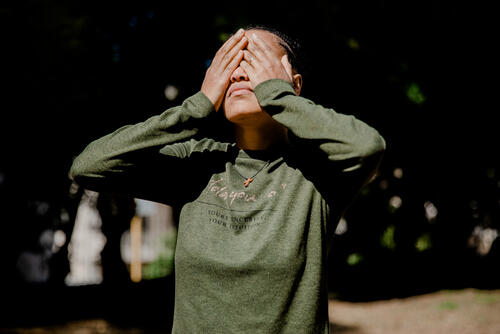In Guinea, Médecins Sans Frontières (MSF) has set up a network of community health agents as part of its strategy to tackle malaria. These volunteers show a real commitment to working for the wellbeing of their communities.
André Millimouno is a builder by trade, but in September 2010 he gave up his job to become a community health agent (CHA). He is part of a team of 47 agents who help manage malaria in their communities in Guéckédou, in the remote Guinée Forestière region.
This morning, André has come to the village of Kat-Kama, which is 15 kilometres from the nearest health post. In the small central square, a crowd of villagers has gathered under a tree. They know that André has come to give them information about malaria, carry out tests and provide treatment for those who test positive.. His T-shirt bears a simple message: ‘Community health agents are committed to fighting malaria’.
“Today I want to talk to you about mosquito nets and explain how best to use them to protect yourselves and your children against malaria,” André begins. After a 20–minute talk, André asks if there are any sick people in the village.

15 minutes later, the diagnosis is confirmed
A mother and her two children come forward, soon followed by others. Delba Mara’s two daughters are feverish. André takes their temperature: the thermometer reads 37.8°C for one and 38.5°C for the other. He then puts on his latex gloves and takes a drop of blood from the tip of each girl’s finger, which he transfers to a small plastic slide – a rapid diagnostic test for malaria.
Some 15 minutes later the diagnosis is confirmed for the two little girls. Next, André gives their mother some ASAQ tablets, an artemisinin-based drug which is very effective against malaria. He explains how to administer the tablets and the importance of completing the full course of treatment: one tablet a day for three days.
After three hours in the village, André has diagnosed malaria and distributed drugs to eight other people, most of them children under five years old. However, André cannot treat everyone. When malaria is detected in a child who is younger than two months or a pregnant woman, or if someone has signs of severe malaria, André refers them quickly to the nearest health post.
“Since I became a community health agent, I have had no time to work as a builder,” says the father of eight. “The sick people in my community really need me, and it takes up a lot of my time, but it’s a personal commitment.”
Like the other community health agents in the area of Guéckédou, André is looked after by the community, who excuse him from work duties in the fields and give him a few dozen kilos of rice from each harvest. Without the involvement of the community, his work would not be possible. “When a village agrees to support and help its community agent, it is deciding to play an active part in its health, improving the likelihood that the project will continue once MSF has left,” explains Philippe Latour, MSF’s field coordinator in Guéckédou.
Innovative strategies to fight malaria
“We set up this system of community health agents to treat simple malaria cases within the community,” says Jeannette Pedersen, an MSF nurse in charge of community outreach activities. “Here, not only are the villages often far from health facilities, but the roads are bad and people don’t have the means to travel.”
“Our aim is to see these strategies taken up throughout Guinea,” says Charles Gaudry, MSF’s head of mission in Guinea. “We’re optimistic that we will succeed. The Minister of Health and his partners are already setting up a system of community health agents to treat simple malaria in other parts of the country, based on MSF’s experience in Guéckédou.”
In 2012, some 77,000 cases of malaria were treated in the health facilities supported by MSF in the Guéckédou region; 23,000 of them were handled by community health agents like André, each prepared to go the extra mile to keep their communities healthy.





